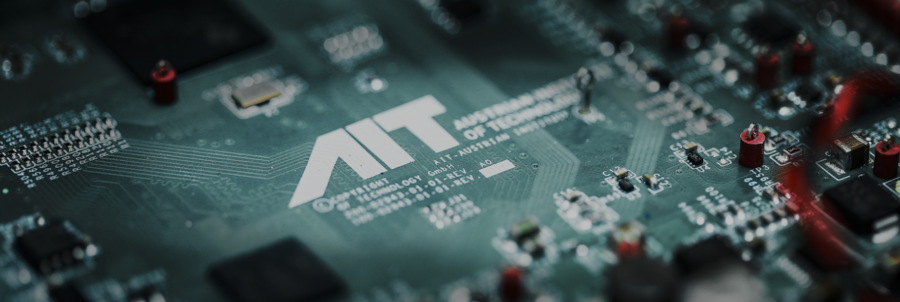Digitisation, Automatisation and Decarbonisation are major trends that will drastically change the way we live, work and use mobility and transport in the future. The transport industry is not only vital to Austria, but is a major driving force for the whole European economy. To address the great challenges of the future mobility system, Austria has been running specific national transport related research programmes for a long time, which are effectively combined with the relevant research and technology programmes of the European Union.
Solutions & Technologies of the AIT Center for Digital Safety & Security, presented at the TRA 2018
In the context of comprehensive and global networking and digitization the Center for Digital Safety & Security is developing modern information and communication technologies (ICT) and systems in order to establish secure and reliable critical infrastructure. The center focuses on key technology areas e.g. Cyber Security for Industrial Control Systems (ICS), Cyber Physical Systems (CPS) and Internet of Things (IoT), highly secure and highly available software and systems as well as next generation wireless communication (5G), advanced encryption methods (Quantum Safe) for virtual IT systems as well as latest sensor technologies and systems for the protection of critical infrastructure and digital identity management by state-of-the-art biometrics sensors. At TRA 2018 the experts presented the following solutions and services:
5G M2M Communication Technologies for Next Generation Transport and Industry Applications
AIT experts in the field of Physical Layer Security develop novel communication methods for 5G systems, which enable ultra-reliable and high-performance communication links with minimal response times (latencies). This makes it possible to replace cables in production environments by wireless systems or to provide reliable communication between autonomous vehicles.
Protection of Critical Infrastructures and Networks
Thanks to the special expertise at AIT, Austria is regarded as a high-tech location for cyber security in the international arena. Based on its rich experience in digital safety and security, AIT has positioned itself as a reliable partner to national authorities engaged with the topic on a nation-wide scale, and is a wellrespected expert institution for cyber security within the European scientific community. Experts at AIT are creating leading-edge technologies and solutions based on machinelearning technology appropriate for the future cyber defence ecosystem, to tackle the cyber threats arising from the emergence of comprehensive ICT networks with their increasing interconnectedness and unclear attack surfaces. These special IT security solutions will set new standards and help to ensure that Austrian products remain competitive in the global market as a result of Austrian research expertise.
Reliable, Safe and Secure Cyber-Physical Systems
Dependability means Availability, Reliability, Safety, Integrity, Maintainability, and Security. It is a key aspect in many application domains. For instance, robots are increasingly expected to be working together with humans in the Industry 4.0 setting. Self-driving cars will take autonomous decisions based on sensor data and communication with other vehicles and infrastructure. Strongly interconnected IoT-services and devices also are expected to work reliably, and be safe and secure at the same time. In domains like these, safety, security and privacy overlap and any malfunction or weakness can result in loss of human lives or expensive damage and loss of reputation. Ensuring the dependability of these complex systems therefore is a precondition for the public to be trusting and accepting them. In the field of Dependable Systems Engineering the experts focus on developing methodologies, tools and standards for increasing, verifying and validating the dependability of software and systems – during conception, development, certification and operation. The group comprises highly experienced scientists and practitioners alike, and is not only working on fundamental research questions but also has a strong connection to industry.
GPS-Independent Real-time Sensor Solutions for Train Tracking & Monitoring
Fibre optic cables can be used as distributed acoustic sensors: light pulses inserted from one end are reflected if sound or pressure waves impinge on the cable at some point. By applying an interferometer, distance and time-dependent intensity information can be derived. In this way features can be computed and conclusions about the event drawn automatically in real time. This technology enables surveillance of wide-ranging zones, such as railway tracks or highways, over a range of up to forty kilometres using an interrogator. Such a system will also be capable of tasks such as tracking trains, monitoring train integrity, and detecting unauthorized activities on the railroad embankment. The AIT software has been successfully tested in the above applications and is available for further pilot projects and developments.



